The rise of e-commerce has created a new era in the way we buy and sell products. For many businesses, making sense of the digital landscape and finding their place in it can be overwhelming. Search engine optimization (SEO) is one of the most effective long-term growth strategies for creating brand awareness online. It works by maximizing a business’s ability to rank high organically on search engine results pages (SERPs). When you rank high in search engines like Google or Bing, you become highly visible to consumers, which can translate into higher website traffic, greater conversion rates, and increased revenue. SEO consultant services are specifically designed to support high-quality optimization, enabling you to scale your business.
Boost Your Rankings with Expert Guidance
SEO consulting services are professional services provided by experts in digital marketing. The main purpose of SEO consulting services is to drive traffic to your website. Consultants employ several SEO tools and tactics to support this process. For example, consultants can create high-quality content with articles, videos, podcasts, and webinars to engage a business’s target audience—the ideal customers for a given product or service. This content is launched on the company’s website and social media platforms. Also, the content can be shared in partnership with other websites and social media platforms relevant to the industry, including high-authority influencers.
Maximize your website’s potential with expert SEO consultation
SEO is an easy and powerful way to connect with potential customers in your industry, local and globally (depending on your brand’s intended audience and reach). Retail is no longer restricted to brick-and-mortar shops. In fact, studies show that in 2021, approximately 2.14 billion people worldwide are expected to buy goods and services online. So, how can you hope to stand out from the other 7.9 million online retailers vying for customers’ attention? Through proper implementation of SEO practices.
Unlock the Secrets to Higher Rankings and Traffic
SEO consultants offer several impactful services. Some businesses need multiple services, while others may only require a few. It all depends on each enterprise’s specific needs and goals.
SEO Audits
An SEO Audit is usually the first step of any SEO consulting service, and it’s essentially a walk-through of your website to identify potential issues in navigation or content. This can be as simple as looking at page titles for spelling errors or checking metadata tags. Still, it also may mean more intensive work, like identifying low-quality links pointing back to your site that need to be removed (or getting those pages crawled by Google again). During this stage, an SEO consultant will help you diagnose what needs fixing so you know how best to proceed. The SEO Audit is an important step that can not be ignored.
Competitor Analysis
This service is for businesses that want to see how they stack up against their competition. Competitor analysis entails finding out what keywords competitors are ranking for on search engines, assessing which ones are doing better or worse than yours, and identifying any gaps that need filling. It’s also useful if a competitor is taking away more of your market share. By identifying where a competitor dominates with SEO, you can work toward fixing any issues to regain ground. The end goal here is content optimization—as we know from SEO Audits, sometimes it just takes tweaking web pages rather than getting rid of things altogether.
Keyword Research
One common service that many SEO consulting agencies will offer you is keyword research. If you don’t know which keywords to target, they’ll find them for you and provide a list of the most relevant ones based on the goals set during your earlier audits. Keyword research can be done through various methods, such as looking at trends in search engine queries, researching social media trends/mentions, analyzing click-through rates from Google Adwords Keyword Tool or Bing Ads Intelligence Tool, reviewing what’s working best for competitors, or utilizing tools such as SEMrush and Keyword Finder.
Marketing Channel Research
One of the most overlooked aspects that many SEO consulting agencies will help you with is marketing channel research. They’ll explore your target customer’s journey and determine which channels they use to purchase, how their attention span changes throughout the online process, and what type of content resonates best at each stage to capture leads for future sales. Marketing channel research can be done through various methods, such as analysis of web traffic sources and conversion rates, researching social media posts/trends, and reviewing competitor landing pages and ads/links on SERPs.
Backlink Audits
Backlink audits will help you identify what kind of links exist on your site (e.g., do you need more editorial or sponsored links?), how trustworthy those link sources are based on their domain authority (DA), and whether there is any negative activity coming through them with penalties by looking at your overall domain authority. Your DA tells consumers and search engines how trustworthy your site is, which can affect the likelihood of ranking well.
On-Page SEO
On-page SEO is all about what you have on your web page, from the words written to how they’re coded and laid out in relation to one another. This service aims to ensure that your site’s content can be well-indexed by search engines for better rankings and increased traffic.
This SEO service usually includes keyword research/analysis. Search engine optimization consultants can develop a keyword strategy for your business or website based on the type of industry you work in and what keywords are most relevant for ranking well with search engines. Other on-page services include:
On-page content optimization – Ensuring that the text written on your site is readable by both humans and search engines. It also ensures that your meta information is optimized, including meta title/page title and meta description.
On-page link building – Creating links between your site and other sites in a way that builds up authority for both you and the websites you’re linking to.
Off-Page SEO
Off-page SEO refers to any optimization effort that’s not on your website and includes:
Social media marketing: Establishing a presence with social networks like Facebook, X, LinkedIn, or Google+. This is important for getting found in the SERPs. It also allows you to create links to content from other websites, which can provide SEO benefits.
Pay-per-click advertising: These ads are placed on a search engine results page; you only pay when the ad is clicked.
Conversion optimization: This includes A/B testing and conversion rate optimization (CRO), which essentially means optimizing your site so that it’s easier to convert visitors into loyal customers.
Technical SEO
Technical SEO involves making sure that your site is coded properly, as well as optimized to improve things like:
Minimizing page load time: Reducing the size of images on your website and choosing appropriate file names for each image.
Implementing clean URLs: Cleaning up duplicate content and ensuring that all pages are reachable from at least one static URL
Local SEO
Local SEO includes optimizing your website content to rank well when someone searches for “restaurant near me,” ensuring that you are represented in all local search directories and showing up at least once for every local query relevant to your product/service type. While this doesn’t necessarily help boost website traffic, it does help increase brand awareness and local foot traffic to your brick-and-mortar storefront.
Voice SEO
Voice search has become integral to how people interact with their devices. Research shows that approximately 50% of consumers are researching products using voice search.
An SEO consultant skilled in voice search and knowledgeable in voice search trends can help you optimize your website for voice search by implementing descriptive content to answer the questions that users ask as they speak into their device (e.g., “Shoe store near me?”), as well as other commonly searched phrases.
Content Creation
A good SEO marketing strategy includes content creation. High-quality content, such as blogs, videos, and podcasts, has the ability to boost brand awareness in an engaging and insightful way. SEO consultants can strategically build content around relevant topics that a business’s target audience would find useful. With well-placed keywords and keyword phrases, SEO professionals ensure the content will help users find their way to your website. With higher traffic comes the potential for greater conversion rates and increased sales.
Reputation Management
The internet is a vast and open space that can be both an ally and an enemy to your business. For this reason, having someone who knows how the web works is essential to help manage your company’s online reputation. An SEO consultant will work closely with you to identify uncomplimentary comments and testimonials and help you address and/or correct them. The goal here isn’t to erase negative reviews if a customer genuinely had a problem that wasn’t addressed. Instead, you want to go out of your way to address the situation, to show them (and others) that you want to improve their experience – which will then help boost your reputation and level of trustworthiness.
5 Key Benefits of SEO Consulting Services
The primary goal of search engine optimization is to attract your target audience to your website. When implemented correctly, the benefits of SEO consulting services are numerous. Here are five important benefits.
Builds Brand Awareness
Your products or services may be incredible, but if consumers don’t know you’re out there, they can’t engage with your brand. A well-designed SEO marketing strategy can put your company on the digital map. With the power of several SEO tools and tactics, target audiences searching for solutions to their problems will have a much easier time finding you.
Enhanced Ranking
With increased visibility online, search engines like Google and Bing will begin to take notice of your brand and propel you closer to the top of SERPs. When consumers search for products and services, they’ll look towards the top of SERPs to find the answer to their problem. Potential customers want solutions fast. If you aren’t close to the top, they’ll just go with one of your competitors.
Increased Website Traffic and Conversion Rates
Now that your potential customers know you’re there, they can pour into your website. SEO consulting services are designed to engage your specific group of ideal buyers—the target audience. Your answer to their particular problem can result in greater high-quality traffic and higher conversion rates.
Improves User Experience
High-quality content drives traffic to your website and provides your target audience with useful, relevant information. Providing a steady stream of content around trending topics can help improve user engagement. Also, SEO consulting services ensure that your website is easy to navigate for users and can be accessed across multiple mobile devices.
Strengthens Your Reputation
Reputation is everything. Backlinks from high-authority sites and influencers will increase your brand’s credibility. SEO consulting services strategically seek out and include the right high authority sites to engage them in partnerships that organically boost your image in the digital market. As credibility grows, your business can solidify its reputation as one of the leading enterprises in your industry.
The list can go on for quite some time. However, one of the biggest benefits is that once SEO has been properly implemented into a webpage, blog, or other content, it will work for you almost indefinitely! Why? Because SEO is designed to help customers find what they need when needed. So, as long as you’re taking the time to update your content when required (such as updating statistics or changes in specific products/services), your content will be considered valuable to your target audience – something that Google will reward you for.
Can SEO Services Be Done In-house or is it Better to Hire a SEO Consultant?
Once you have a solid understanding of SEO and SEO best practices, you can utilize it in-house to help increase brand awareness and website traffic. However, SEO consultants are experts in digital marketing. There are so many tools and techniques that SEO professionals employ to meet the unique needs of each client. SEO consultants know how to implement digital marketing strategies efficiently and effectively. Also, many small businesses don’t have the staff or budget to stay on top of the ever-changing search engine optimization stratosphere. That’s why you want to invest in an SEO consulting agency. Outsourcing your SEO duties can be extremely cost-effective and allow you to dedicate your current staff to other necessary projects.
When Should You Consider Hiring SEO Consulting Services?
You may want to reach out to an SEO consulting company when:
You have a limited budget and can’t commit to an in-house SEO consultant.
You’re not ranking high enough in SERPs.
Visitors aren’t converting into customers after coming from organic rankings.
You’re frustrated with SEO and want to focus on other aspects of your business.
Your business has been around for over five years with little change in keywords or social media strategy.
Whether you need a helping hand or someone to take over the SEO processes completely, a verified SEO consulting agency can help you reach your retail goals by ensuring that your ideal audience sees your pages, posts, and content.
Experience Cadence SEO Consulting Services
The digital marketing landscape is constantly changing. When you hire an SEO consulting service, there are many benefits beyond just getting your site ranked higher on Google and other major search engines. A good consultant should tell you where your website stands in terms of its rankings and what needs to be done for improvement so that your business can grow. CadenceSEO is a full-service consulting firm with decades of digital marketing experience to help you reach your business goals. Ready to get started? Then contact our team of SEO experts today for a free consultation!






